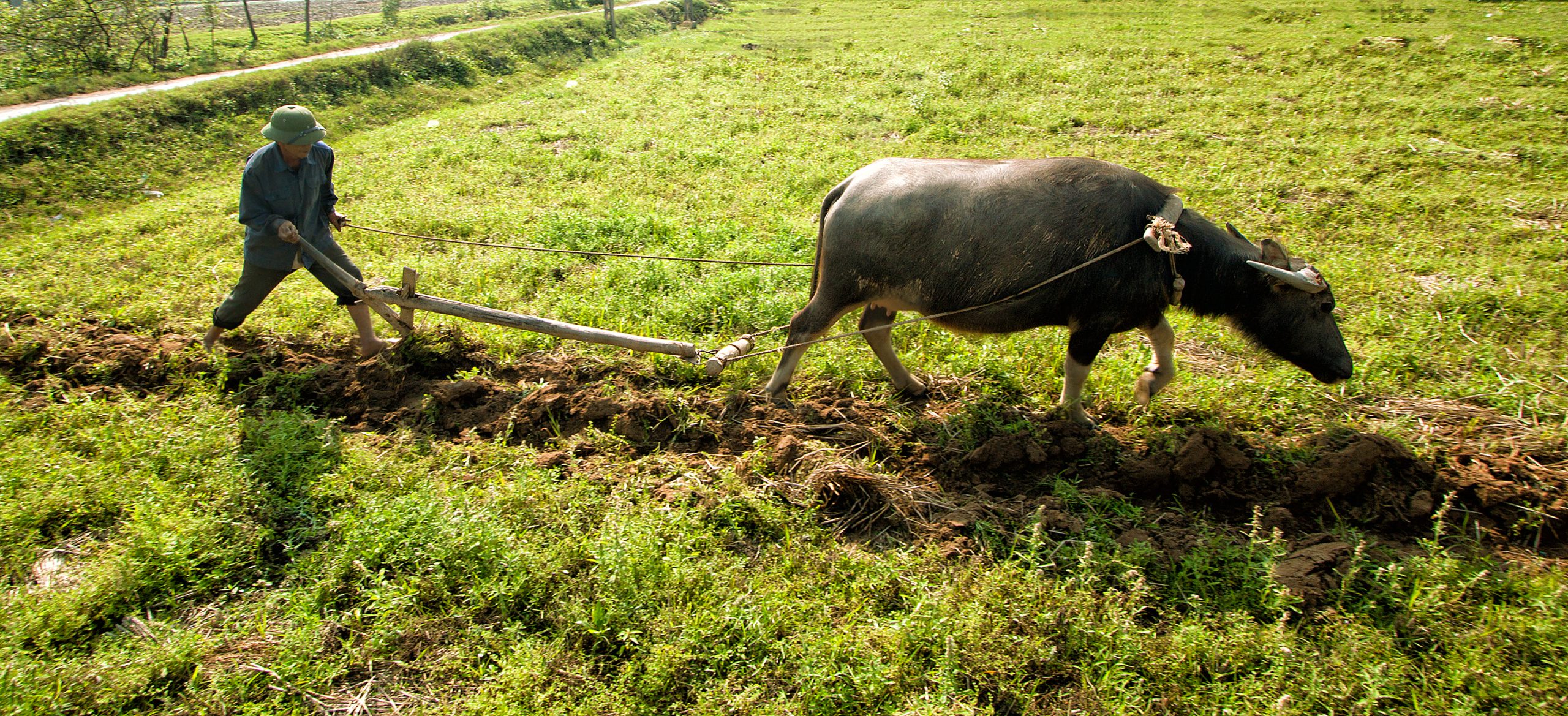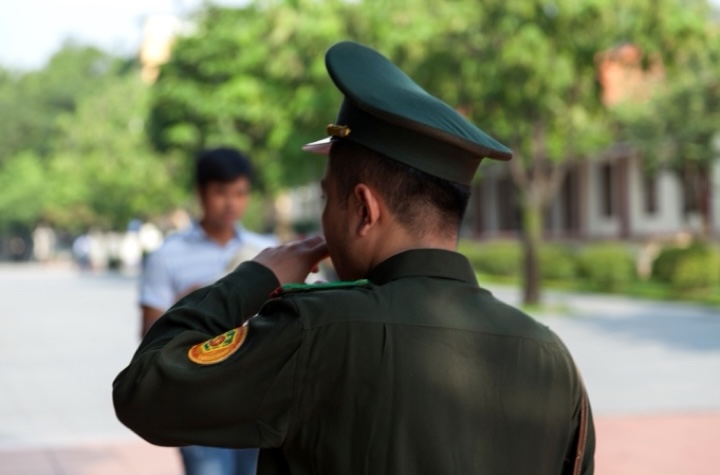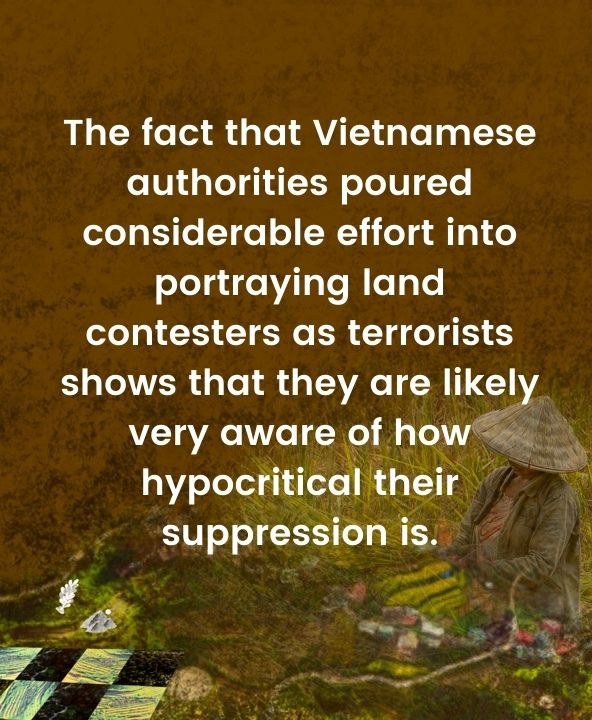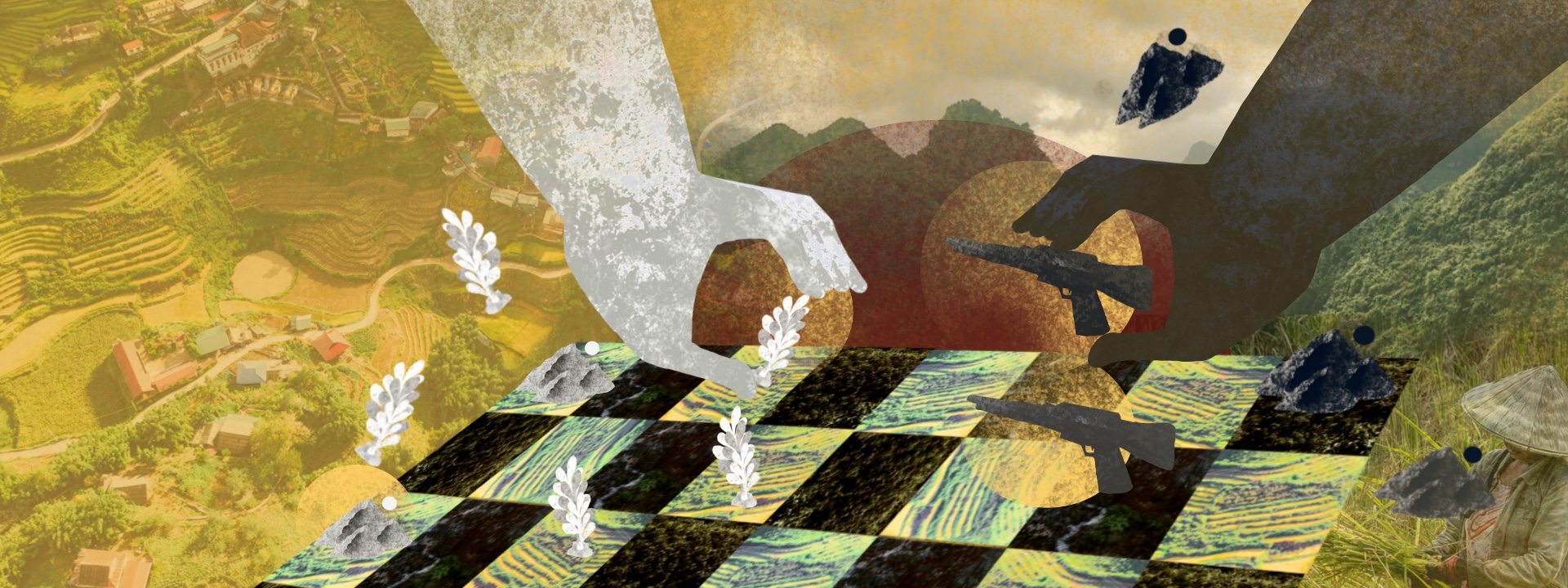|
Getting your Trinity Audio player ready...
|
Editor’s note: In 2017, the Vietnamese military lay the groundwork for an airport at Mieu Mon, near Dong Tam village in Hanoi. There were nearly 50 hectares that, locals say, were seized by the military for this purpose. Locals staged protests against this and the government responded by arresting four of the protesters. Villagers retaliated by detaining (and eventually releasing) 38 officials for one week after concessions were made. On Jan. 9, 2020, up to 3,000 uniformed men raided the village and attacked its residents with clubs, guns, and teargas, among others, as protesters continued to resist.
Land ownership has had a long history in Vietnam, a country where farmers have historically accounted for the majority of the population and where land is extremely vital to the agricultural sector’s livelihood. The Dong Tam Incident, which occurred in 2020, is a continuation of the plight of Vietnamese farmers against outside forces who would forcefully take their land and brand them as terrorists.
An attack on the village by Vietnamese police, which resulted in the death of three police officers and one villager, and the arrest and sentencing of 29 villagers, made no sense.
Why did a mere land conflict become a “terrorist” event in the eyes of the state-controlled press? Why did the authorities and the media antagonize those who claimed Dong Tam as their own? Why did the police claim that an 84-year-old elderly man was a terrorist and then shoot him dead in his home? Why were some of his children given the death penalty?
Everything is extremely suspicious, especially when considering the Vietnamese Communist Party’s (VCP) claim to be working for the empowerment of farmers. The actions of the authorities who dealt with the Dong Tam conflict are extremely dubious.

To better understand the brutal response of the Vietnamese authorities in the Dong Tam land conflict, one needs to examine the connection between the Vietnamese government and the police, alongside the relationship between the police and the local protesters. In this regard, the Dong Tam incident needs to be viewed through the lens of French philosopher Michel Foucault’s theory on discipline, punishment, and criminality.
Why are some crimes punished heavier than others?
Foucault’s most famous work, “Discipline & Punish: The Birth of the Prison,” is a radical analysis of how the prison system in Western countries was born not out of the need to establish justice or rehabilitate criminals, but rather out of the need to maintain the privileges of the ruling class by punishing those who violate the status quo.
In other words, crimes committed by the rich and powerful are not punished as seriously as the crimes committed by the poor and powerless. Foucault argues that this is not just a social phenomenon, but that the entire legal and penal system was set up to do exactly that.

For example, why are petty crimes, such as minor theft, punished much more often than white-collar crimes like financial fraud, despite the latter being more damaging to society at large? According to Foucault, this is because the people who steal threaten those who have the most influence on the authorities: the bourgeoisie. Meanwhile, white-collar crimes, like financial fraud, benefit the bourgeoisie, despite violating the livelihood of peasants and the common people.
To support his argument, Foucault looked into the history of land ownership in France. He argued that tolerable crimes are often those that concern public properties, while intolerable crimes — crimes that get policed heavily — concern private property.
In the ancien regime in pre-modern France, most lands were owned by the nobility or the government instead of private business owners; lands were mostly public property. Some crimes such as trespassing on fields, gathering wood in the forest, or not paying taxes, were not heavily punished as they benefited both the bourgeoisie and the common people.
However, everything changed when land ownership became more common for the bourgeoisie, who now had a financial interest in securing their lands. With the decline and eventual erasure of the nobility, the bourgeoisie became the ruling class with the most political power. Due to this shift in land ownership from public to private, crimes involving land ownership and squatting became heavily punished.
Hence, the role of law enforcement, according to Foucault, is inherently tied to the commercial interests of the bourgeoisie who became the dominant class after the fall of the nobility. In other words, the police are more likely to be brutal towards powerless peasants who violate the interests of businesses and landowners.
How does this apply to the Dong Tam situation?
On the surface, Foucault’s theory does not seem to be applicable to the situation of Dong Tam. Firstly, his analysis was entirely based on Western societies — more particularly, French society — where land privatization and the transfer of political power are entirely different from Vietnam’s.
Secondly, how do we make sense of the VCP’s attempt to “nationalize” lands under a socialist ideology? Foucault’s entire analysis is based on the West’s capitalist transformation, where the power of the nobility was transferred to the bourgeoisie and where land ownership became private.

Land in socialist Vietnam is supposed to be public property. According to Article 53 of the Constitution, “land … [that is] invested and managed by the State are public properties, coming under the ownership of the people, represented and uniformly managed by the State.”
If land in Vietnam was truly a public good, and if Foucault’s theory is true, why were the police so brutal to the farmers at Dong Tam? The simple and unsurprising answer is that land in Vietnam is not really public property, despite these theoretical and legal claims.
Land is owned by the government, whose commercial interests are paramount. The government
in Vietnam is the de facto landlord, despite its socialist ideology and its attempts to nationalize land.
Supposedly, public land can be considered the private property of the government, if we expand on Foucault’s analysis. This is because the government has the power to decide whether or not to take land from the peasants, and the prerogative to decide what to do with such land. Most of the time, contested land is used by private companies for their own interests.
Despite the historical ties of land to farmers, the VCP has more commercial and financial interests in oppressing farmers than in uplifting them.
From the viewpoint of political legitimacy, it makes sense for the Vietnamese authorities to be brutal on both the legal and the media frontiers. For a party that builds its historical and political legitimacy on being a defender of farmers, being seen as oppressing the common people is the worst political accusation.
Therefore, the leadership had to paint the Dong Tam farmers as terrorists to justify this oppression. This action masks the VCP’s hypocritical stance as a de-facto capitalist, whose land ownership as well as the monopoly of political power are supposed to go unchallenged.

Furthermore, the police and the military in Vietnam are explicitly linked to the interests of the government, both historically and practically. The modern Vietnamese police is an “institutional offspring” of the communist revolutionaries, whose main objective is to safeguard the state. In a country that lacks independent media that could hold the police accountable, abuse of power is also extremely likely.
Hence it is heartbreaking to know that the majority of those involved in land disputes with Vietnamese authorities still trust the government.
According to anthropologist Philip Taylor, these individuals often do not aim to undermine the state through their protests, but rather aspire to get the government to act in their favor. Le Dinh Kinh himself, the 84-year-old elder who was brutally shot and killed in the Dong Tam conflict, was a member of the VCP for much of his life and still believed in the VCP until the day he died.
As many land conflicts in Vietnam remain unresolved, the Vietnamese government faces a difficult paradox of trying to reconcile its commercial interests with its historical ties to farmers and peasants — the same people who enabled the VCP to obtain the great political power that it enjoys now.
The fact that Vietnamese authorities poured considerable effort into portraying land contesters as terrorists shows that they may be aware of how hypocritical their suppression is. The question now is whether or not they will change their behavior.
For farmers, the situation has always been bleak. The deaths of some of them seem to have little significance for the government or the police. After all, Senior Lieutenant Dang Viet Quang, who shot Le Dinh Kinh, was hailed as a hero and received a promotion, while Kinh’s children are in prison with some even facing the death penalty.
While scholars and academics can afford the privilege of analyzing the Vietnamese authorities’ actions through complex theoretical lenses, we should not forget that there are real people out there whose suffering continues. They are the reason we struggle. ●
This article was first published by The Vietnamese on Feb. 23, 2022, and is being republished here by the Asia Democracy Chronicles with permission.


















